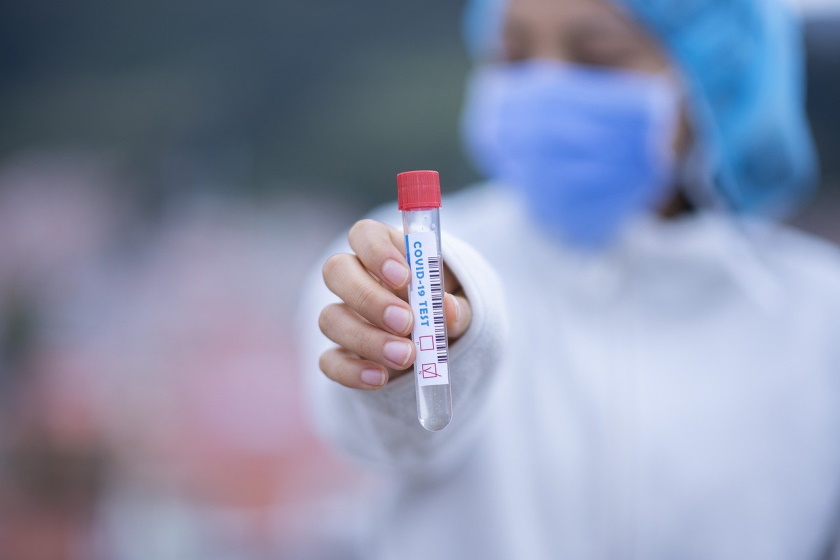UK will start first COVID-19 challenge study “within a month”

Sometime within the next few weeks, young and healthy volunteers will be deliberately exposed to the COVID-19 coronavirus in the UK in what looks set to be the first study of its type worldwide.
The human challenge study has just secured ethics committee approval and will recruit up to 90 volunteers aged 18-30 years, according to the UK government, which is backing it with £33.6 million ($47 million) in funding.
The volunteers will be infected in a controlled environment where they can be carefully monitored by medical staff 24 hours a day.
The researchers will also inoculate them with the version of the virus that has been circulating in the UK since the start of the pandemic, rather than one of the new, more transmissible variants, as an added safety precaution.
The aim of the study is to find the smallest amount of SARS-CoV-2 that is needed to cause an infection, see how the immune system reacts to the virus, and to assist in the development of new treatments and vaccines.
In particular, the study will aid in the design of other challenge studies that could be used for vaccine efficacy testing, and to determine what type of immune response is required to protect against re-infection. It will also examine how a person who is infected with the COVID-19 virus transmits infectious virus particles into the environment.
[caption id="attachment_77522" align="alignright" width="187"] Dr Chris Chiu[/caption]
Dr Chris Chiu[/caption]
“Our eventual aim is to establish which vaccines and treatments work best in beating this disease, but we need volunteers to support us in this work,” said the study’s lead investigator Dr Chris Chiu, from Imperial College London.
The study was first announced last year in a media briefing at the Wellcome Trust in London. At that event, Chiu said that the ICL team had been safely running human challenge studies with other respiratory viruses for over 10 years, according to a Lancet Respiratory Medicine report on the proceedings.
There have been questions about the necessity of the challenge studies, particularly as the number of vaccines becoming available for COVID-19 is rising quickly, amid concerns that if a volunteer in the trial was to become severely ill, get ‘long covid’ or die, it could fuel conspiracy theories or anti-vaccine sentiment.
Debate has also surrounded enrolment of young subjects, who are most likely to have a mild infection, as the findings may not be relevant to protecting more vulnerable people against serious disease.
Charles Weijer, a bioethicist and expert on the ethics of randomised controlled trials, wrote in the British Medical Journal last November that with vaccines expected to arrive soon it would be unethical to run challenge studies as it is unclear why they are required for second-generation shots.
He also points out that while challenge studies have been used for decades, with no reported patient deaths, in the past they have focused on well-characterised diseases while SARS-CoV-2 is much less well understood.
Clinical research company hVIVO, which is helping to run the trial, says that some of the research objectives in the challenge study cannot be achieved with traditional field trials which rely on exposure to virus circulating in the general population.
“COVID-19 human challenge studies have the potential to play an important role in providing data and information that will help continue to develop vaccines to control the pandemic,” said the company’s chief scientific officer Dr Andrew Catchpole.












